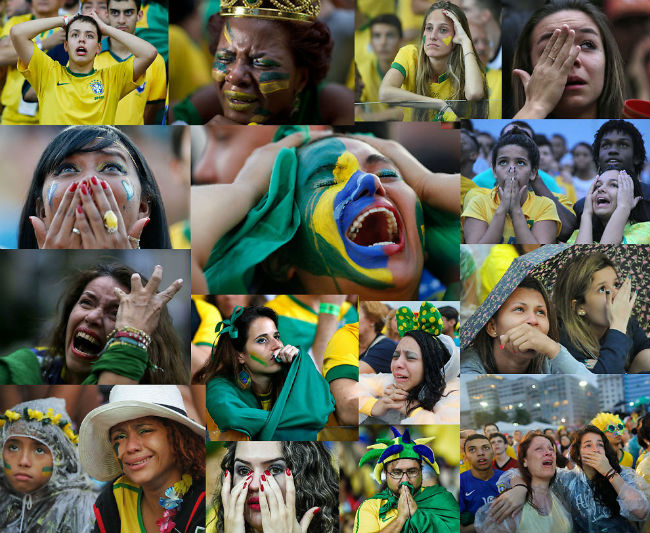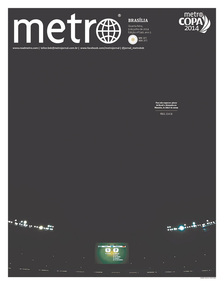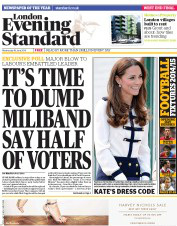When Marco Rodriguez blew the whistle on Germany's dissection of Brazil at 10.47 on Tuesday night, the presses had already printed tens of thousands of newspapers. Some held back editions, but no sports editor will have felt that their Wednesday paper had done the match justice.
Newsdesks, too, will have wanted to get in on the action - they'll have gone into yesterday's morning conferences with schedules full of ideas for follow-ups.
It's what happens when you're a journalist. "No show without Punch", someone once teased me when I went scuttling into work on a day off when a big story broke. We all want to play, to feel part of the main event. Hands up any Fleet Street journo who waited for the phone to ring before turning up when Diana was killed.
The hardest part is accepting that you aren't needed, that the caravan has rolled on without you.
Fourteen million people are said to have watched the Brazil-Germany game; thirty-five million tweets were posted about it. By the time this morning's papers were delivered, the best part of 36 hours had passed since the match had ended, another semi-final had been decided, we were all looking forward to Germany v Argentina. Would readers want to look back?
The Mail was convinced they would. It put Mick Jagger on the front and said that Brazilians were blaming him for the defeat. He was, we suddenly discovered, known in Brazil as a jinx. There was a spread in the news section - more on Mick, some jokes lifted from the web and a full page of Max Hastings on "the awesome (and chilling) genius of the Germans".
Enough? Not a bit of it, there was a further "superb World Cup pullout" labelled "the match that rocked the world" in the heart of the paper - eight pages of punditry, oversized pictures and more jokes from the internet.
The Mail has never been one to worry about being late with a story if it thinks it's good enough to interest its readers - today it catches up on the Times's tax investigation, for example; the SubScribe pictures and spreads blog predicted that it would come back and beat the rest when it missed the Peter Blake Albert Hall mural. It did. So I would hesitate to say that this was OTT, but it felt it.
To be fair, Mick made an appearance right across the street. The Sun, which got a cute splash with a good head from a chef who bet a fiver on the result and came away with £2,500, quoted Jagger as saying he was prepared to take the blame for the first goal, but not the rout. Good on him and good on the Sun. The Jagger story was the lead on the 4-5 spread, complementing another two pages in sport. Job done, time to move on.
That seemed to be the standard response. The Times ran to six pages in its World Cup supplement, but for most it was a couple of pages in news with a bit of rioting and a bit of cultural commentary, plus a couple more in sport. The Telegraph offered extra value in its news half-page with a panel on previous examples of the Jagger jinx, plus a delightful Matt cartoon.
That's where the difficulty lies when the internet is light years ahead of the old inkies. How much should you assume the readers know? If you think they know (chances are they've seen the story on your own website as well as everywhere else), why tell them again? And if they don't, you owe them some basic background. So those who left the Jolie non-story alone were probably wisest.
There was one Mail story, however, that almost everyone took delight in reporting: that correction and apology to George Clooney.
When a rival has to eat humble pie, there are always those who ready savour that other dish that's best served cold.







 RSS Feed
RSS Feed


